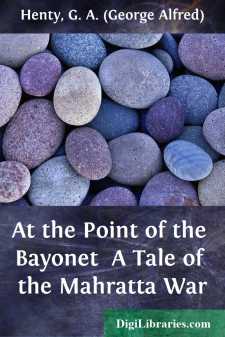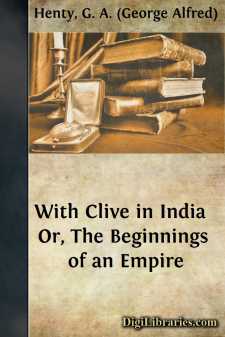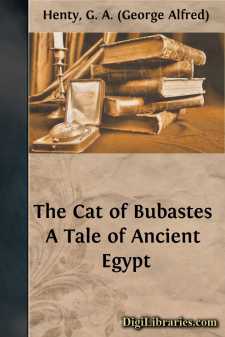Categories
- Antiques & Collectibles 13
- Architecture 36
- Art 48
- Bibles 22
- Biography & Autobiography 813
- Body, Mind & Spirit 142
- Business & Economics 28
- Children's Books 17
- Children's Fiction 14
- Computers 4
- Cooking 94
- Crafts & Hobbies 4
- Drama 346
- Education 46
- Family & Relationships 57
- Fiction 11829
- Games 19
- Gardening 17
- Health & Fitness 34
- History 1377
- House & Home 1
- Humor 147
- Juvenile Fiction 1873
- Juvenile Nonfiction 202
- Language Arts & Disciplines 88
- Law 16
- Literary Collections 686
- Literary Criticism 179
- Mathematics 13
- Medical 41
- Music 40
- Nature 179
- Non-Classifiable 1768
- Performing Arts 7
- Periodicals 1453
- Philosophy 64
- Photography 2
- Poetry 896
- Political Science 203
- Psychology 42
- Reference 154
- Religion 513
- Science 126
- Self-Help 84
- Social Science 81
- Sports & Recreation 34
- Study Aids 3
- Technology & Engineering 59
- Transportation 23
- Travel 463
- True Crime 29
At the Point of the Bayonet A Tale of the Mahratta War
Categories:
Description:
Excerpt
Preface.
The story of the war in which the power of the great Mahratta confederacy was broken is one of the most stirring pages of the campaigns which, begun by Clive, ended in the firm establishment of our great empire in the Indian Peninsula. When the struggle began, the Mahrattas were masters of no small portion of India; their territory comprising the whole country between Bombay and Delhi, and stretching down from Rajputana to Allahabad; while in the south they were lords of the district of Cuttack, thereby separating Madras from Calcutta. The jealousies of the great Mahratta leaders, Holkar and Scindia, who were constantly at war with each other, or with the Peishwa at Poona, greatly facilitated our operations; and enabled us, although at the cost of much blood, to free a large portion of India from a race that was a scourge--faithless, intriguing and crafty; cruel, and reckless of life. The Mahrattas, conquering race as they were, yet failed in the one virtue of courage. They could sweep the land with hordes of wild horsemen, could harry peaceful districts and tyrannize over the towns they conquered; but they were unable to make an effective stand against British bayonets and British sabres. They were a race of freebooters; and even the most sentimental humanitarian can feel no regret at the overthrow of a power that possessed no single claim to our admiration, and weighed like an incubus upon the peoples it oppressed. The history of the Mahrattas, as written by Grant Duff, whose account I have, throughout, followed, is one long record of perfidy, murder, and crime of all sorts.
On a swell of ground, in the wild country extending from Bombay to the foot of the Ghauts, stood a small camp. In the centre was a large pavilion; the residence, for the time, of Major Lindsay, an officer whose charge was to keep the peace in the district. It was no easy matter. The inhabitants, wild and lawless, lived in small villages scattered about the rough country, for the most part covered with forest, and subject to depredations by the robber bands who had their strongholds among the hills. Major Lindsay had with him a party of twenty troopers, not for defence--there was little fear of attack by the natives of the Concan--but to add to his authority, to aid in the collection of the small tax paid by each community, and to deter the mountain robbers from descending on to the plain. He generally spent the cool season in going his rounds while, during the hot weather, his headquarters were at Bombay.
He had with him his wife and infant child. The child was some three months old, and was looked after by an ayah, who had been in Major Lindsay's service ten years; for three elder children had been born to him--all, however, dying from the effects of the climate before reaching the age of five. The ayah had nursed each, in succession, and had become greatly attached to the family, especially to her youngest charge. She had come to speak English well; but with the child she always talked in her native tongue, as the major saw the advantage it would prove to the boy, when he grew up, to be able to speak fluently one, at least, of the native languages....












